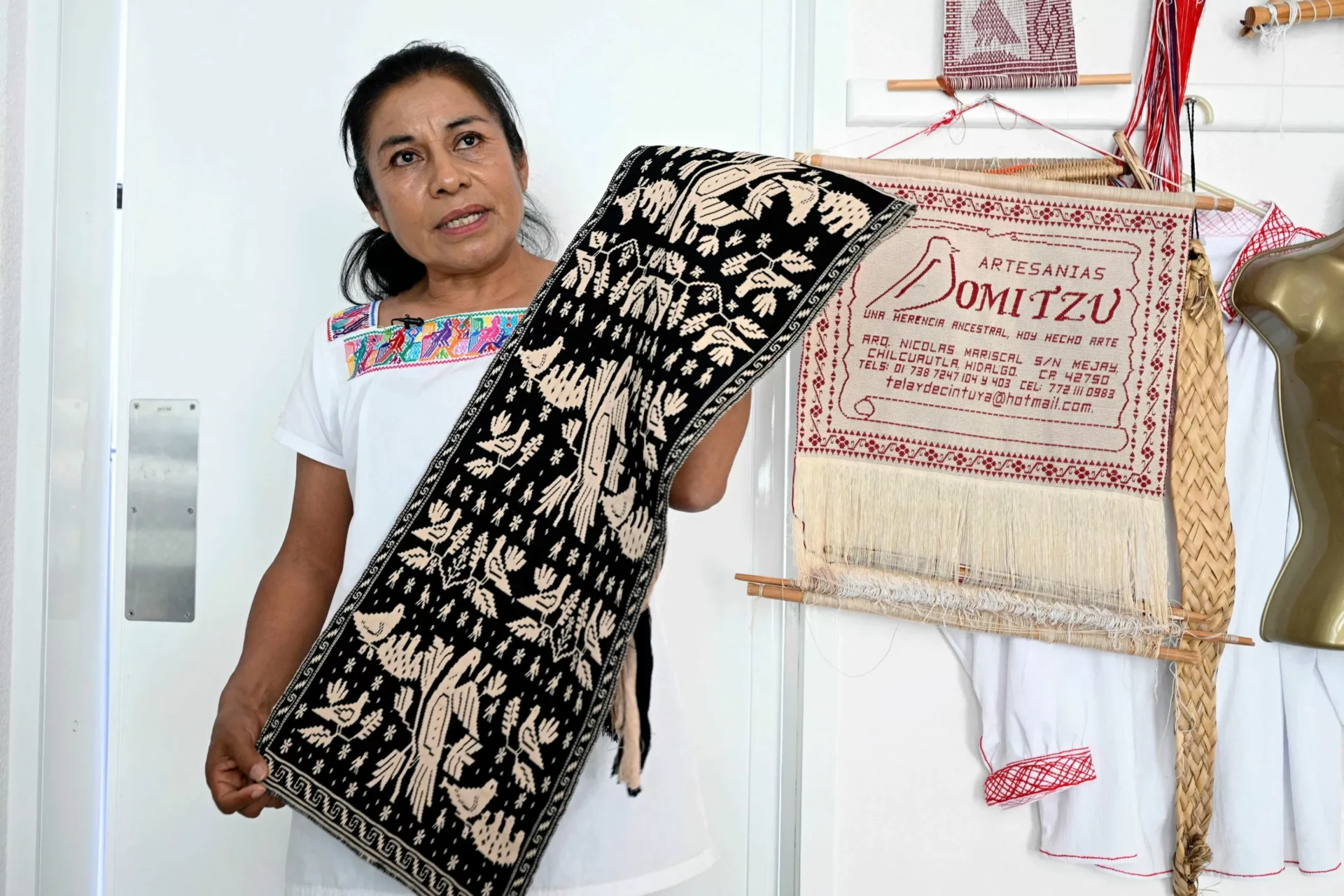For years, Mexico’s Indigenous weavers have been fighting for recognition and appreciation of their traditional craft. These artisans, who have been creating beautiful textiles for centuries, have faced numerous challenges in preserving their cultural heritage and sustaining their livelihoods. However, there is now a glimmer of hope for these weavers, thanks to the two women leading the country’s presidential race.
María de Jesús Patricio Martínez, also known as Marichuy, and Margarita Zavala, are both vying for the presidency in Mexico’s upcoming election. While their political ideologies may differ, one thing they both have in common is their strong support for the Indigenous communities and their traditional crafts. This has given the weavers a newfound sense of hope and pride in their work.
The Indigenous weavers of Mexico come from various ethnic groups, each with their unique textile traditions. These crafts are deeply rooted in their culture, history, and way of life. However, despite their significance, these weavers have faced many challenges over the years. One of the biggest obstacles has been the lack of recognition and appreciation for their craft. Many people view their products as cheap souvenirs rather than valuable pieces of art. This has led to a decline in demand for their products and, consequently, a decline in their income.
Moreover, the weavers have also faced exploitation from middlemen and large corporations who buy their products at low prices and sell them for a significant profit. This has left the weavers struggling to make ends meet and has perpetuated the cycle of poverty in these communities.
However, the two female presidential candidates have brought a ray of hope for these weavers. Both Marichuy and Margarita have been vocal about their support for the Indigenous communities and their traditional crafts. They have promised to promote and protect the weavers’ rights and ensure fair compensation for their work.
Marichuy, who is an Indigenous woman herself and a representative of the National Indigenous Congress, has been a strong advocate for the rights of Indigenous communities. She has been actively involved in promoting and preserving their cultural heritage and has been a vocal critic of the government’s neglect of these communities. Her presidential campaign has brought much-needed attention to the struggles of the weavers and has given them a platform to voice their concerns.
On the other hand, Margarita Zavala, a former first lady of Mexico, has also shown her support for the weavers. She has visited several Indigenous communities and has expressed her admiration for their crafts. She has promised to work towards creating a fair trade system for the weavers and to promote their products both nationally and internationally.
The weavers’ response to these two women’s support has been overwhelmingly positive. They feel that finally, their voices are being heard, and their craft is being recognized for its true value. Many weavers have expressed their gratitude towards Marichuy and Margarita for bringing attention to their struggles and for promising to support them if they are elected as the next president of Mexico.
The impact of these two women’s support goes beyond just the weavers. It has also brought attention to the importance of preserving and promoting Indigenous cultures and traditions. Mexico is a country rich in cultural diversity, and it is crucial to protect and celebrate these diverse cultures. The weavers’ crafts are not just beautiful pieces of art; they are a representation of their community’s identity and a way of preserving their heritage for future generations.
Furthermore, the weavers’ craft also has significant economic potential. With the right support and promotion, these artisans can create sustainable livelihoods for themselves and their families. The demand for ethically made and sustainable products is on the rise globally, and the weavers’ crafts have the potential to tap into this market.
In conclusion, the two women leading Mexico’s presidential race have given the Indigenous weavers a newfound sense of hope and pride in their craft. Their support has brought much-needed attention to the struggles of these artisans and their traditional crafts. It is now up to the government and the people of Mexico to ensure that the weavers are given the recognition and support they deserve. Let us all join hands in celebrating and preserving Mexico’s rich cultural heritage and supporting the Indigenous communities and their traditional crafts.

